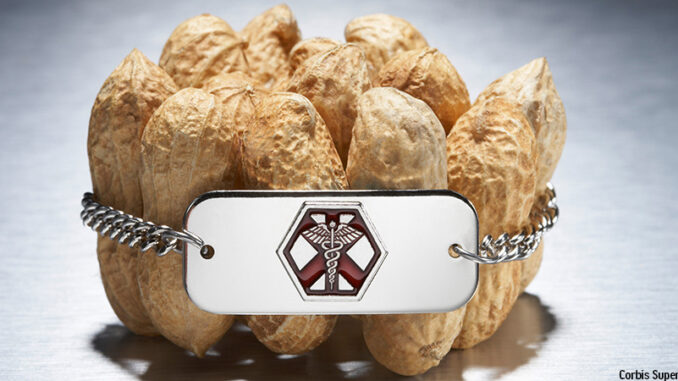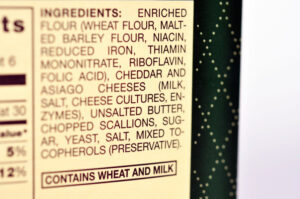
Chances are, you or someone you know is affected by a peanut allergy. About 2 percent of children in the United States are allergic to peanuts, and the number is growing every year. For this reason, you may have heard that babies shouldn’t be fed peanuts. However, a new study has just come out that puts forward the opposite conclusion: feeding peanut products to children under the age of one can drastically reduce their risk of developing a peanut allergy.
The Study
The new guidelines, which came out January 5, are the result of a 2015 trial known as LEAP (Learning Early About Peanut Allergy). In it, 640 babies between 4 and 11 months old were divided into two groups. One group was fed peanut products, and the other was not. (Both groups of babies had already been diagnosed with severe eczema and/or egg allergies, which are related to peanut allergies.)
For the children who were fed peanut products, the rate of peanut allergy dropped by roughly 80 percent. Therefore, the National Institute of Allergy and Infectious Diseases recommends that parents feed (otherwise healthy) babies peanut products early and often–around the same time that they begin introducing other solid foods.
Parental Reactions

The LEAP trial was the first large, randomized, controlled trial to address the issue of whether or not to feed babies peanut products, making it difficult to argue with the results. However, its findings go against what parents have been told for decades about withholding peanut products from young children. Also, the message about when and how to feed peanut products to babies keeps changing.
In 2000, the American Academy of Pediatrics told parents to keep peanuts away from children at a high risk for allergies until at least age 3. In 2008, they changed their minds and said that the delay wasn’t helpful in preventing peanut allergies after all, and that parents could feed peanut products to babies whenever they wished.
The newest findings can be confusing to parents, reversing what they have always thought to be true. Worse, they may leave some parents feeling guilty if they worry they did the wrong thing and somehow helped cause or worsen their child’s peanut allergy.
What Does This Mean for Other Allergies?
The study also raises questions about when babies should be introduced to other highly-allergenic foods, such as eggs, dairy, fish, and shellfish. Smaller studies already have been done that seem to point to the same conclusion: that introducing allergenic foods early will help reduce a child’s risk of developing an allergy. However, none of these studies have been as large, random, or well-controlled as the LEAP study, and so their results cannot be considered definitive.
It’s also important to note that feeding peanut products to children as babies doesn’t guarantee that they will be allergy-free. But the new study certainly provides parents with plenty of food for thought.
